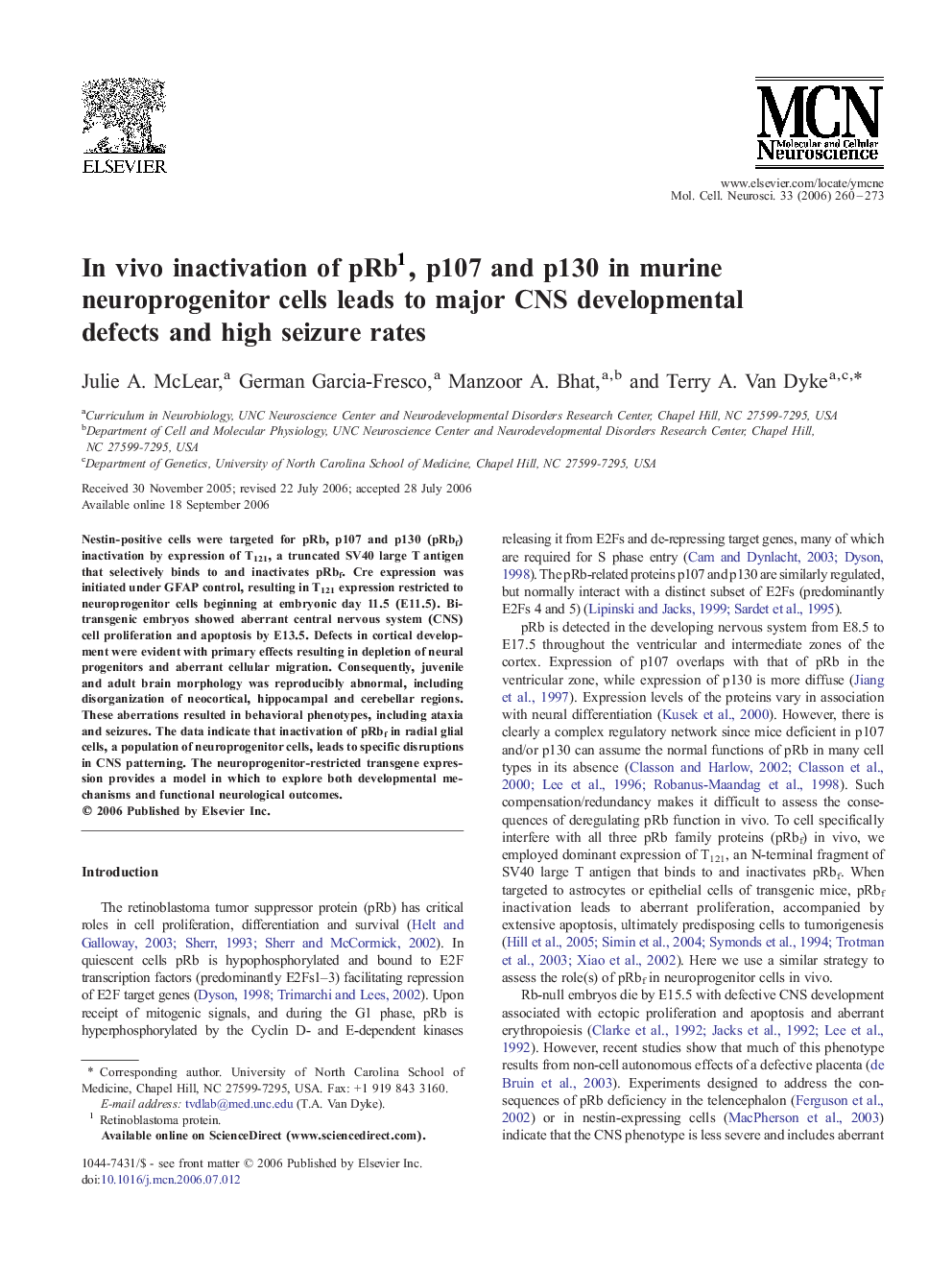| Article ID | Journal | Published Year | Pages | File Type |
|---|---|---|---|---|
| 2199545 | Molecular and Cellular Neuroscience | 2006 | 14 Pages |
Nestin-positive cells were targeted for pRb, p107 and p130 (pRbf) inactivation by expression of T121, a truncated SV40 large T antigen that selectively binds to and inactivates pRbf. Cre expression was initiated under GFAP control, resulting in T121 expression restricted to neuroprogenitor cells beginning at embryonic day 11.5 (E11.5). Bi-transgenic embryos showed aberrant central nervous system (CNS) cell proliferation and apoptosis by E13.5. Defects in cortical development were evident with primary effects resulting in depletion of neural progenitors and aberrant cellular migration. Consequently, juvenile and adult brain morphology was reproducibly abnormal, including disorganization of neocortical, hippocampal and cerebellar regions. These aberrations resulted in behavioral phenotypes, including ataxia and seizures. The data indicate that inactivation of pRbf in radial glial cells, a population of neuroprogenitor cells, leads to specific disruptions in CNS patterning. The neuroprogenitor-restricted transgene expression provides a model in which to explore both developmental mechanisms and functional neurological outcomes.
